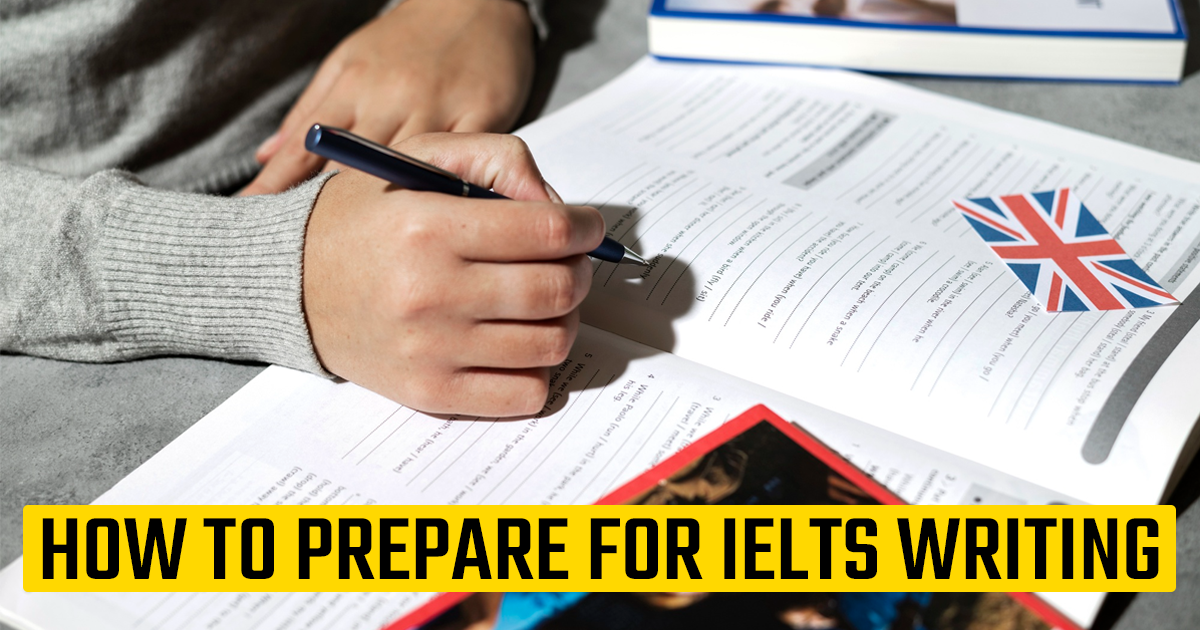IELTS (International English Language Testing System) is an English proficiency test that helps you relocate to a country where English is the native language. The basic philosophy behind the test is to help the examiners understand whether you will be able to work and communicate, in your daily life, in a country where English is the native language. The test has 4 tasks: Listening, Reading, Writing, and Speaking. Besides this, the IELTS test is of two types: Academic Test and General Training Test. The IELTS Academic Test is for those who wish to study, and the General Training test is for those who wish to apply for a PR or jobs. Based on your performance in either of the two, you will receive a score on a scale of 1-9.
While taking the IELTS academic exam, you need a different approach for each of the four sections. For the writing section, in particular, you need to know the rules of writing and the structure of writing. Your writing reflects how you process your thoughts. To develop your writing style, you need to stick to the rules and practice writing. Here we explain the IELTS Writing section tips in detail.
The writing section of the IELTS test is the most challenging of all the sections. These IELTS Writing tips and tricks will help you in solving this section better.
The IELTS writing exam includes two tasks (IELTS Writing Task 1 and IELTS Writing Task 2). Topics are general and can span across various themes. The topics are suitable for candidates entering undergraduate and postgraduate studies, or seeking a PR or a job in an English-speaking country.
IELTS Writing Task 1, Time Allotted: 20 minutes, Word Limit: 150 words
On the IELTS Academic Writing Task 1, students are presented with a graph, table, chart, diagram, or process, and are asked to describe, summarize, or explain the information in their own words. They may be asked to describe and explain data, describe the stages of a process, how something works, or describe an object or event. The main purpose of this task is to see how well a student assimilates information and can put that understanding in his own words.
In the IELTS General Writing Task 1 module, a candidate is supposed to write an informal/semi-formal/formal letter. A candidate has to write a minimum of 150 words. In case a candidate writes less than 150 words, he/she will be penalized. However, writing more than 150 words will not attract a penalty.
IELTS Writing Task 2, Time Allotted: 40 minutes, Word Limit: 250 words
IELTS Writing Task 2 involves a ‘Discursive Essay’. This means that the essay revolves around a particular topic and you are asked to give your opinion on it, provide solutions, argue for/against, etc. The standpoint of the student should ideally be neutral, as this is an exercise where there are no correct or wrong answers, rather the focus is on the correct style of writing and presentation of coherent thoughts. Make sure that you answer what has been asked, rather than writing off-topic. The examiner must not find any difficulty in understanding your essay.
A candidate has to write a minimum of 250 words. Anything less than 250 words will attract a penalty. Make sure that your essay answers the question. Whatever stand you take, should be clear and there should be coherence and flow in your content. Try to take a stand in the introduction itself. The remaining paragraphs must revolve around answering the question and supporting your stand. You can include examples and facts to support your point of view.
It is not just about writing, it is about expressing your thoughts coherently and logically. The complete section is devoted to writing, so, you should be well-versed in the rules of the language. Here, are some of the points to help you tackle the IELTS Speaking section better.
Introduction: Start with the introduction directly and move ahead with the other paragraphs. Learn the art of paraphrasing
Paragraphs: Concisely break your ideas. Describe your ideas with relevant examples. Try to explain one idea in one paragraph, and make sure it should be relevant. When you change your paragraph, the change should have continuity and flow.
Conclusion: A strong conclusion is a must. It is important to give points and back them with relevant examples
- The IELTS Writing Task 2 or the Essay constitutes about 2/3 of your score on the writing test. This means that you should spend around 40 minutes on your Essay. Do not spend more than 20 minutes on IELTS Writing Task 1
- Write more than 150 words for IELTS Writing Task 1 and more than 250 words for IELTS Writing Task 2. If you write less than the prescribed word limit, you will be penalized
- Do not count the number of words instead count the lines and get an estimate of the word count
- You can make notes about the essay on the question paper. No extra paper will be given to make notes
- Write a clear overview for IELTS Writing Task 1 and write a conclusion for IELTS Writing Task 2.
- Divide writing tasks into paragraphs, and check spelling while you write
- Make sure to use either British or American English and follow it in the complete section
- Make sure what you are writing is relevant, lengthy does not make it better. Your thoughts should have coherence and there should be a proper structure in your written work.
- Remember one thing, there is no right or wrong answer, you will be judged on your expression, coherence, structure, grammar, and vocabulary
- Avoid informal writing. There are some rules of writing you should follow.
- Each body paragraph has to include: the topic sentence, supporting sentences (2-3 sentences), and development sentences (including example, experience, and data)
- It is always good to add relevant examples with your opinions. The examiner is going to assess the essay based on a lot of factors and if you elaborate on your ideas along with the examples shows that you have understood what has been asked.
- Practice Sample Questions. Do both tasks in one hour. You can focus only on task 1 or task 2, but before the test, you should practice writing both tasks to get familiar with a time limit.
India’s largest online platform Yourpedia can play a very significant role in preparing candidates for IELTS. It offers a variety of resources and services that can help candidates improve their knowledge, skills, and bands in IELTS.




 yourpediaglobal@gmail.com
yourpediaglobal@gmail.com +91-9501773076
+91-9501773076




 Book a Free Session
Book a Free Session











